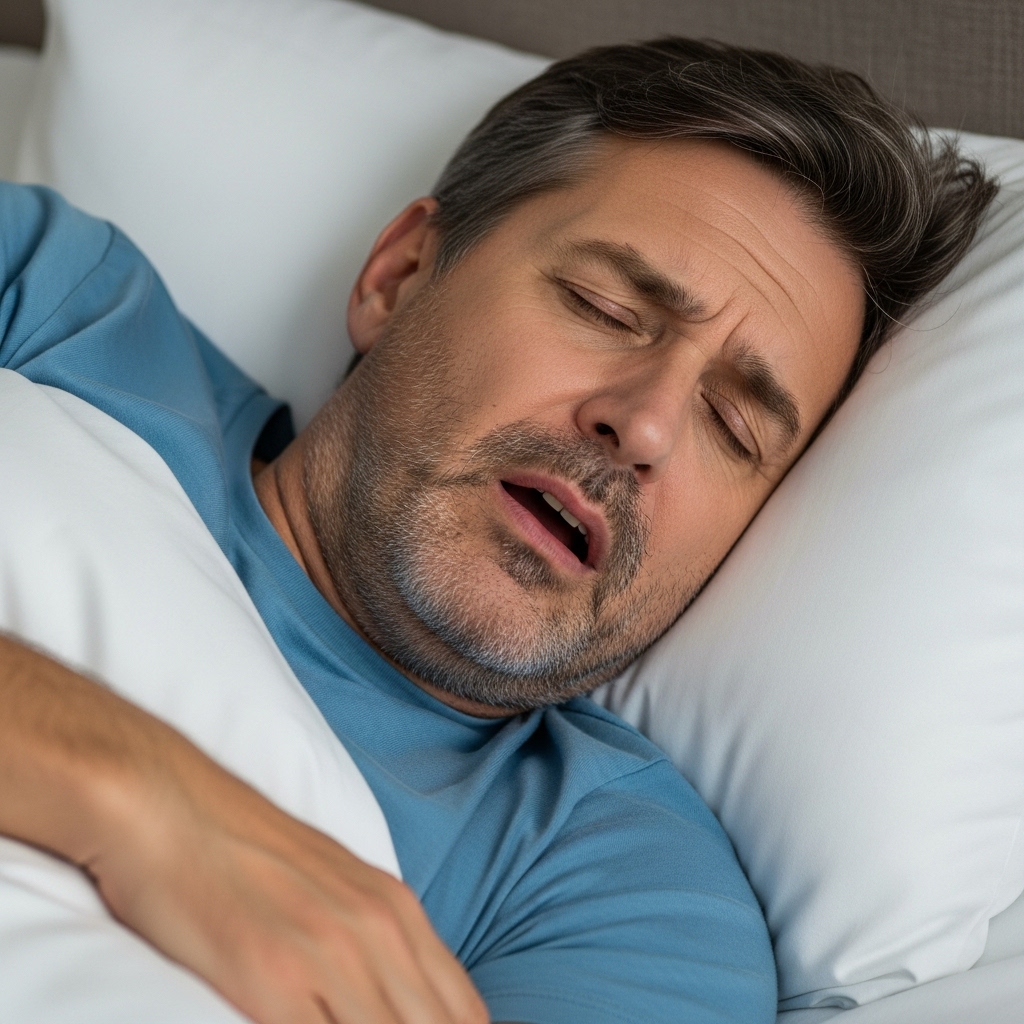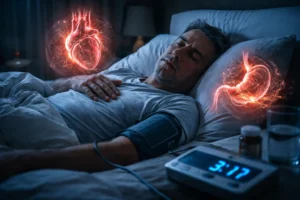Sleep is a crucial part of our daily routine, yet many people suffer from sleep disorders that prevent them from getting a good night’s rest. One of the most common yet often overlooked sleep disorders is sleep apnea. Understanding the symptoms of sleep apnea can be the first step toward better health. In this article, we’ll explore the common signs of sleep apnea that you should never ignore.
Sleep apnea is a serious sleep disorder that occurs when a person’s breathing is interrupted during sleep. These interruptions can last from a few seconds to a few minutes and may occur 30 times or more in an hour. The most common form of sleep apnea is obstructive sleep apnea (OSA), which happens when the throat muscles intermittently relax and block the airway during sleep.
Recognizing the Symptoms of Sleep Apnea
Identifying the symptoms of sleep apnea is crucial for seeking timely medical intervention. Here are some common signs to watch out for:
Loud Snoring
Loud snoring is one of the most noticeable symptoms associated with sleep apnea. While not everyone who snores has sleep apnea, it is a significant indicator, especially if the snoring is interrupted by periods of silence followed by gasping or choking sounds. If you or a loved one experiences this type of snoring, it’s time to consult a healthcare professional.
Daytime Fatigue

Daytime fatigue is a hallmark of sleep apnea. People with sleep apnea often experience excessive daytime sleepiness, which can lead to difficulty concentrating, memory problems, and even falling asleep during activities like driving or working. This persistent tiredness is due to the frequent interruptions in sleep cycles caused by apnea episodes.
Restless Sleep
Individuals with sleep apnea may experience restless sleep, characterized by frequent awakenings throughout the night. This restlessness can result in tossing and turning, difficulty maintaining a comfortable sleeping position, and waking up feeling unrefreshed. If you often wake up feeling like you haven’t slept well, sleep apnea might be the underlying cause.
Other Warning Signs of Sleep Apnea
Besides the more obvious symptoms, there are other warning signs that might suggest the presence of sleep apnea:
Morning Headaches
Many people with sleep apnea report waking up with headaches. These headaches are often due to the lack of oxygen during the night and the buildup of carbon dioxide in the blood. If morning headaches are a regular occurrence for you, it might be worth investigating further.
Difficulty Concentrating
Sleep apnea can significantly impact cognitive function. Many individuals experience difficulty concentrating, forgetfulness, and decreased attention span. These cognitive issues can affect daily tasks and overall quality of life.
Irritability and Mood Changes

by Alex McCarthy (https://unsplash.com/@4lexmccarthy)
Sleep deprivation caused by sleep apnea can lead to irritability and mood swings. The lack of restorative sleep can affect emotional regulation, leading to increased stress and anxiety. If you’ve noticed changes in your mood or emotional well-being, sleep apnea could be a contributing factor.
Risk Factors for Sleep Apnea
Understanding the risk factors associated with sleep apnea can help identify those who may be more susceptible to the disorder. Some common risk factors include:
- Excess Weight: Being overweight increases the likelihood of having sleep apnea, as fat deposits around the upper airway can obstruct breathing.
- Neck Circumference: A thicker neck can indicate a narrower airway, which can increase the risk of airway obstruction.
- Age: Sleep apnea is more common in adults over the age of 40, although it can occur at any age.
- Gender: Men are more likely to develop sleep apnea than women. However, the risk for women increases after menopause.
- Family History: A family history of sleep apnea can increase an individual’s risk of developing the disorder.
- Alcohol and Smoking: Alcohol relaxes the muscles in the throat, while smoking can increase inflammation and fluid retention in the airway. Both habits can exacerbate sleep apnea symptoms.
When to Seek Medical Advice
If you suspect that you or a loved one may have sleep apnea, it is essential to seek medical advice. A healthcare professional can conduct a sleep study to diagnose the disorder accurately. Treatment options, such as continuous positive airway pressure (CPAP) therapy, lifestyle changes, and surgical interventions, can significantly improve symptoms and overall health.
Conclusion
Sleep apnea is a serious sleep disorder with potentially severe health consequences if left untreated. By recognizing the common signs of sleep apnea, such as loud snoring, daytime fatigue, and restless sleep, you can take the necessary steps to seek medical evaluation and appropriate treatment. Don’t ignore these warning signs—addressing sleep apnea can lead to better sleep and a healthier life.








